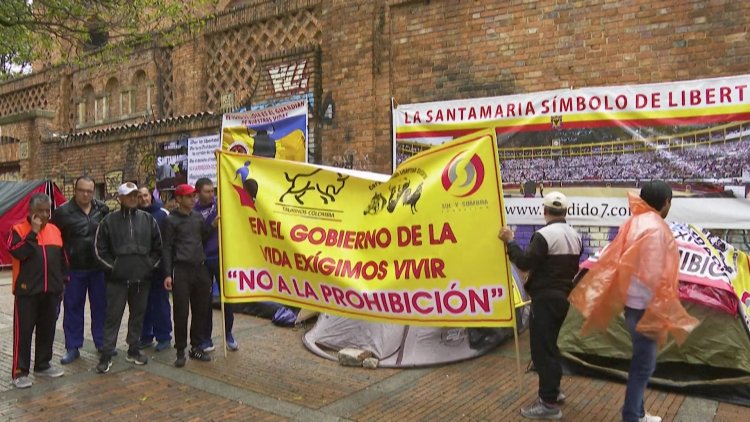Colombia Bans Bullfighting After Congressional Vote

A peaceful demonstration takes place in front of La Santamaria bullring in Bogota, after the Colombian House of Representatives approved a ban on bullfighting.
Colombia's congress passed a bill banning bullfighting, a controversial yet popular pastime in the South American country with hundreds of events drawing thousands of spectators every year.
Leftist President Gustavo Petro, who must approve the step, praised lawmakers for ensuring "death is not a spectacle" with a post on X.
The lower house gave the bill the green light with a 93-2 vote, backing a bullfighting ban from 2027.
The law would bring Colombia in line with other countries in the region that have banned bullfighting, including Brazil, Chile, Argentina, Uruguay and Guatemala.
Leading up to 2027, the state would be required to help find alternative employment options for the tens of thousands of people estimated to depend directly or indirectly on bullfighting for their income.
It would also have to adapt the country's arenas for other sporting and cultural activities.
In 2018, the Constitutional Court recognized bullfights as part of Colombia's cultural tradition.
But the capital Bogota -- one of the oldest bullfighting cities in the Americas -- since outlawed the injuring or killing of bulls, removing the goriest part of the spectacle in what it hoped would eventually bring an end to the blood sport.
The city of Medellin has also imposed restrictions, but bullfighting remains popular in cities like Cali and Manizales.
Colombia is one of only eight countries in the world where bullfights are still held -- which are Ecuador, France, Mexico, Peru, Portugal, Spain and Venezuela.
In Ecuador's capital Quito, it is prohibited to kill the bull.
The Colombian legislation was tabled in 2020 during the presidency of right-winger Ivan Duque, but the vote was postponed.















